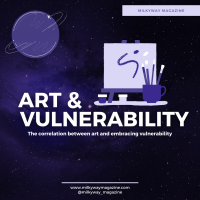
Writer: Hania Mostafa
Editor: Ahmed Ashry
I recently read a book called Daisy Jones and The Six by Taylor Jenkins Reed. This book is very unique as it’s in an interview form. It’s all one big interview with a very famous fictional rock ‘n’ roll band that broken up in their peak of success in the 1970s.
So they’re being interviewed individually years later to discuss their formation, their first songs, their tours, their key to success, and their breakup. They’re all talking from memory and each one from his/her own point of view about the situations they went through.
This book got me thinking about a very important notion. I kept asking myself throughout the book: are they talking about the same situation? Are all their stories different just because that’s what they remember, or are they altering everything just to make themselves look better? Each one of the band members were telling the same story with the same situations but each one of them remember it completely differently. Who started this fight? Who got this idea? Who started this conversation?
All of these were questions that they disagreed on. This just brings me to my point, which is that history, or anything that happened in the past, is very subjective. While I was reading this book, I kept wondering about who was actually telling the truth. Who should I believe? Especially when it is about a band because not everything we see when they are performing is real.
This fictional band was performing one of their best performances ever, the one that delivered them to the climax of their success, when they were actually falling apart behind the scenes. Every member of the band explained the breakup of the band in a different way, some saw that only their problems were the ones that broke up the band, while some others denied that they had anything to do with the fall of the band and blamed it all on others. My point is, human history and their interactions are never facts. You can get a hundred versions of the same situation, but you are the one that gets to decide what to believe.






